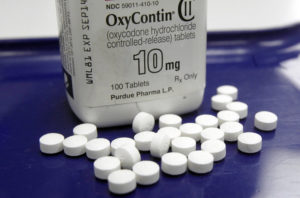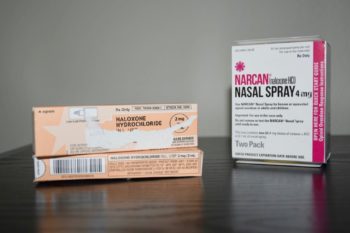Every day, 91 Americans die from opioid overdoses.
That adds up to more than 33,000 people in 2015, or four times as many such overdose deaths as in 1999.
[youtube]https://www.youtube.com/watch?v=47O_t398H34[/youtube]When federal officials finish counting the deaths for more recent years, the number will be even higher.
No wonder there’s widespread concern about how to prevent use of opioids such as prescription painkillers, heroin and fentanyl – and how to blunt their lethality. State Legislatures, in particular, feel pressed to do something about these deaths. The Georgia General Assembly this year passed bills related to the opioid epidemic in the state.
Three years ago, the state passed a law that encourages people to summon help when they are in danger or see someone else in trouble. Police and emergency workers say this “Good Samaritan’’ law is saving lives.

When a medical crisis appears related to drug abuse, many people hesitate to call emergency services for fear they’ll get into trouble. The “Georgia 911 Medical Amnesty Law” is meant to put those fears to rest.
“Under the amnesty law, if you call 911 to get medical treatment for yourself or for somebody who currently needs medical attention, you can’t be held criminally liable for anything on the property, anything on the premises,” said Officer David Ian, an Athens-Clarke County police officer.
The amnesty law also makes it easier for first responders to carry naloxone – a drug used to reverse the effects of opioid overdose – and to administer it to a person who has overdosed. Under its provisions, emergency personnel won’t be liable if the person doesn’t respond or has an adverse reaction.
In Athens-Clarke County, nearly all patrol officers have been trained to use Narcan nasal spray, a branded form of naloxone. They carry it at all times. The county is in the process of training every officer to use this life-saving intervention
What happens when overdose is reported
Responding to such emergencies is a team effort, with police, EMTs and ER doctors all playing a role.
“Opioid-related overdoses are one of the few overdoses where we have a medicine we can give to try to reverse the effects of the drugs,” said emergency medicine specialist Dr. Kurt Horst, a physician at Piedmont Athens Regional Hospital. “If either the police or EMTs think that a person is showing signs of an overdose they can go ahead and administer that drug on site.”

Once the drug is given, emergency responders watch closely to see if the person’s breathing becomes more normal, and they ask the person to respond to simple questions. EMTs rush people who remain unresponsive to a hospital, where an emergency team will do everything possible to revive them. If that works, the ER team will urge them to seek help to deal with substance abuse.
“If someone’s had an opioid-related overdose and Narcan revives them, we can’t make them go receive medical treatment,” said Ian, “though usually we can convince someone who has overdosed to seek medical treatment.”
A person who regains consciousness after a dose of nasal spray may resist transport to the hospital.
“The reason everybody needs to come to the hospital after overdosing, even if they wake up after passing out, is because every medication has a half-life,” said Horst. “Naloxone will last about 30 to 60 minutes. So even if they wake up and seem alert and fine, it’s possible if they’re not watched or monitored they could go back into the state they initially had and require a repeat dosing of the naloxone.”
[youtube]https://www.youtube.com/watch?v=njLpALB5eqs[/youtube]Police officers and other emergency medical workers say they want to save people in this life-threatening situation, not put them in jail.
“If you think you’ve overdosed on something or a loved one has overdosed on something and they’re having problems, then they should call an ambulance,” said Horst, the ER doctor. “The longer you wait, the more detriment or harm is going to be caused to the patient.”
Officer Ian agreed. “From a law enforcement perspective, our main priority is the value of life,’’ he said. “Our ultimate priority is making sure people are taken care of, people are safe.”
Kristina Griffith is a graduate student at the University of Georgia pursuing a degree and career in journalism. Having obtained her bachelor’s degree in psychology, she has a special interest in topics relating to addiction and other mental health disorders.

